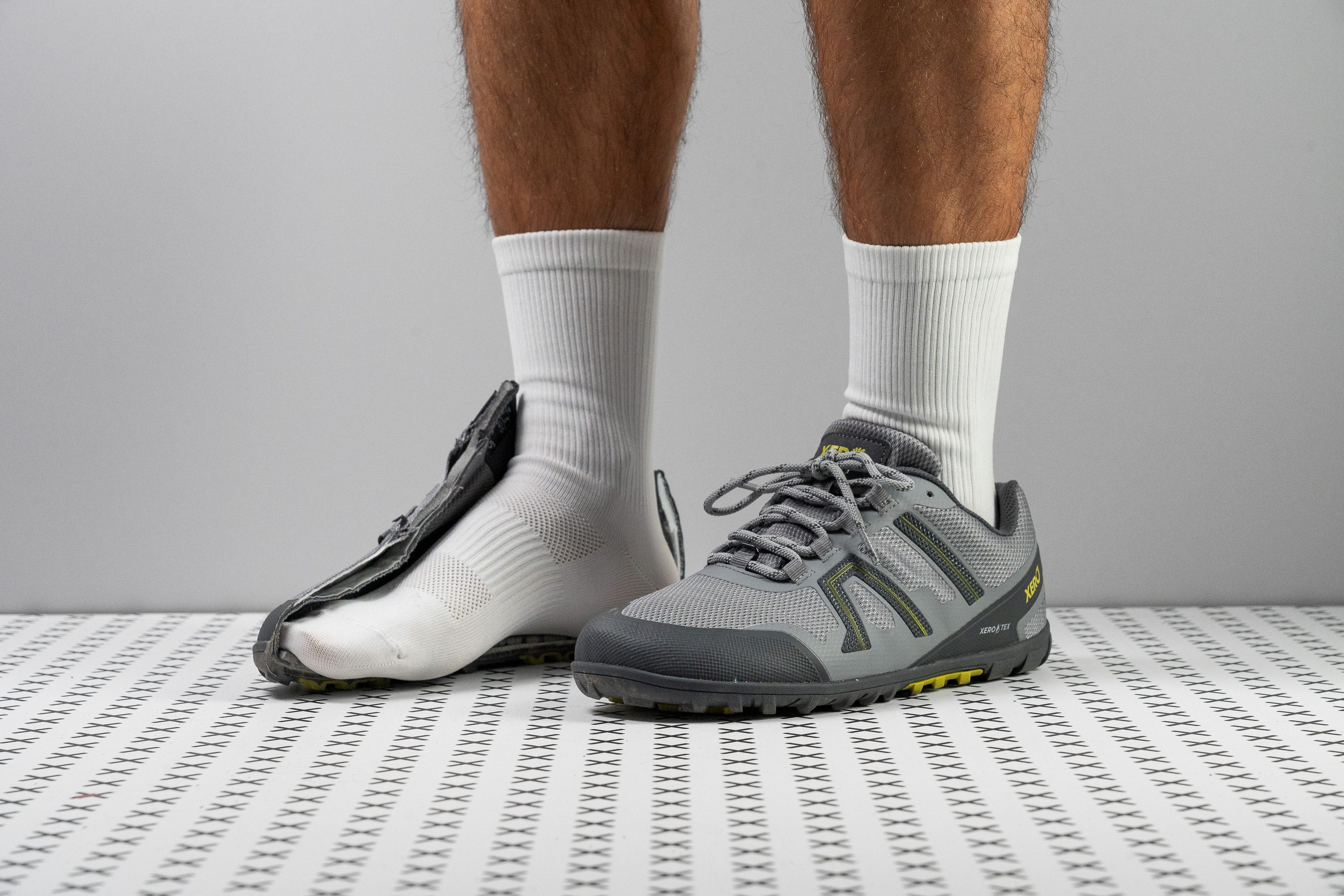Our verdict
Pros
- Ultra-flexible design
- Spacious, anatomic toebox
- Versatile traction
- XeroTex waterproof upper
- Removable, perforated insole
- Secure heel fit prevents slippage
- Reliable in cold conditions
Cons
- Heavier than most minimalist shoes
- Stiff upper limits comfort
- Poor breathability
- Rounded laces prone to frequent untying
Audience verdict
Comparison
The most similar running shoes compared
+ + Add a shoe | |||||
|---|---|---|---|---|---|
| Audience score | 66 Bad! | 76 Decent! | 75 Bad! | 84 Good! | |
| Price | £140 | £145 | £160 | £115 | |
| Trail terrain | Light | Light | Moderate | Light | |
| Shock absorption | - | Moderate | - | - | |
| Energy return | - | Moderate | - | - | |
| Arch support | Neutral | Neutral | Neutral | Neutral | |
| Weight lab Weight brand | 9.7 oz / 274g 9.6 oz / 272g | 9.9 oz / 281g 10.6 oz / 300g | 10.2 oz / 289g 10.4 oz / 295g | 7.8 oz / 221g 9 oz / 255g | |
| Lightweight | ✗ | ✗ | ✗ | ✓ | |
| Drop lab Drop brand | 1.2 mm 0.0 mm | 8.3 mm 9.5 mm | 5.0 mm 5.0 mm | 0.1 mm 0.0 mm | |
| Strike pattern | Mid/forefoot | HeelMid/forefoot | Mid/forefoot | Mid/forefoot | |
| Size | Slightly small | Slightly small | Slightly small | True to size | |
| Midsole softness | Balanced | Soft | Balanced | Balanced | |
| Difference in midsole softness in cold | Small | Normal | Small | Normal | |
| Toebox durability | Decent | Decent | Very good | Decent | |
| Heel padding durability | Bad | Bad | Good | Bad | |
| Outsole durability | Decent | Good | Good | Decent | |
| Breathability | Warm | Warm | Warm | Moderate | |
| Width / fit | Medium | Medium | Medium | Medium | |
| Toebox width | Wide | Wide | Narrow | Wide | |
| Stiffness | Moderate | Moderate | Stiff | Moderate | |
| Torsional rigidity | Flexible | Stiff | Stiff | Flexible | |
| Heel counter stiffness | Flexible | Flexible | Moderate | Flexible | |
| Lug depth | 3.8 mm | 3.6 mm | 3.9 mm | 2.5 mm | |
| Heel stack lab Heel stack brand | 14.6 mm 8.0 mm | 32.1 mm 37.0 mm | 32.9 mm 37.0 mm | 16.1 mm 14.0 mm | |
| Forefoot lab Forefoot brand | 13.4 mm 8.0 mm | 23.8 mm 27.5 mm | 27.9 mm 32.0 mm | 16.0 mm 14.0 mm | |
| Widths available | NormalWide | Normal | NormalWide | Normal | |
| Season | Winter | Winter | Winter | All seasons | |
| Removable insole | ✓ | ✓ | ✓ | ✗ | |
| Orthotic friendly | ✓ | ✓ | ✓ | ✗ | |
| Waterproofing | Waterproof | Waterproof | Waterproof | - | |
| Ranking | #383 Bottom 1% | #360 Bottom 6% | #363 Bottom 5% | #231 Bottom 40% | |
| Popularity | #366 Bottom 4% | #122 Top 32% | #111 Top 29% | #174 Top 46% |
Who should buy
We believe the Mesa Trail WP from Xero Shoes is a great choice for:
- Runners seeking a waterproof, minimalist trail shoe—it's a rare combination!
- Those looking for a barefoot-style trail shoe for cold winters, as it provides solid protection from water, moisture, and cold.
- Minimalist shoe enthusiasts needing a reliable option for runs and hikes in wet environments.
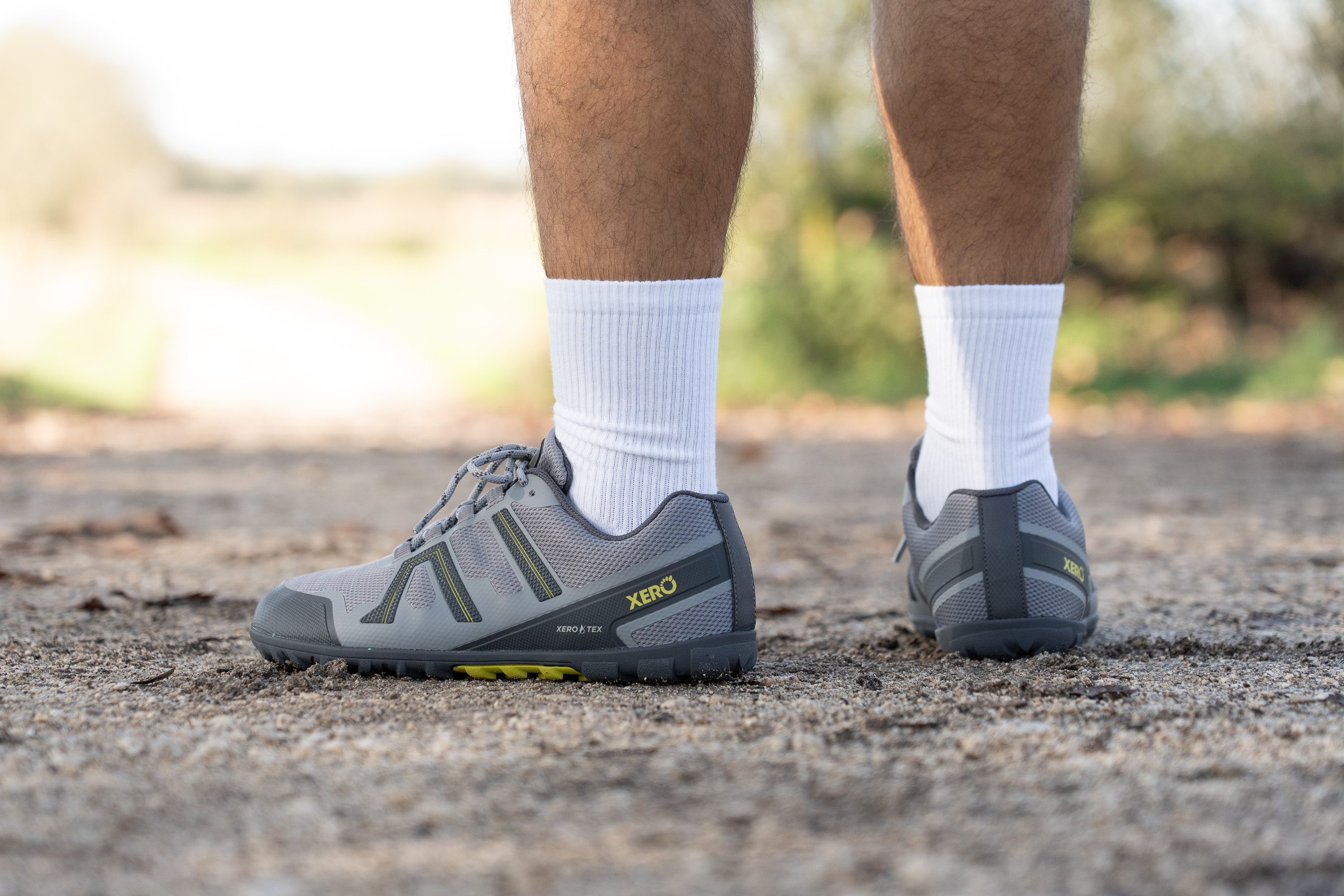
Who should NOT buy
We believe the Xero Shoes Mesa Trail WP feels excessively heavy for a minimalist shoe with a thin midsole. For a similar weight, models like the Hoka Challenger 7 GTX offer more cushioning and all-around comfort, making them better choices for varied terrains.
Additionally, we think the Mesa Trail WP is not ideal for trail runners who don’t frequently face wet or rainy conditions. Its overly rigid waterproof upper sacrifices comfort, and from our perspective, the Merrell Trail Glove 7 and the Xero Shoes Scrambler Low are far superior alternatives.
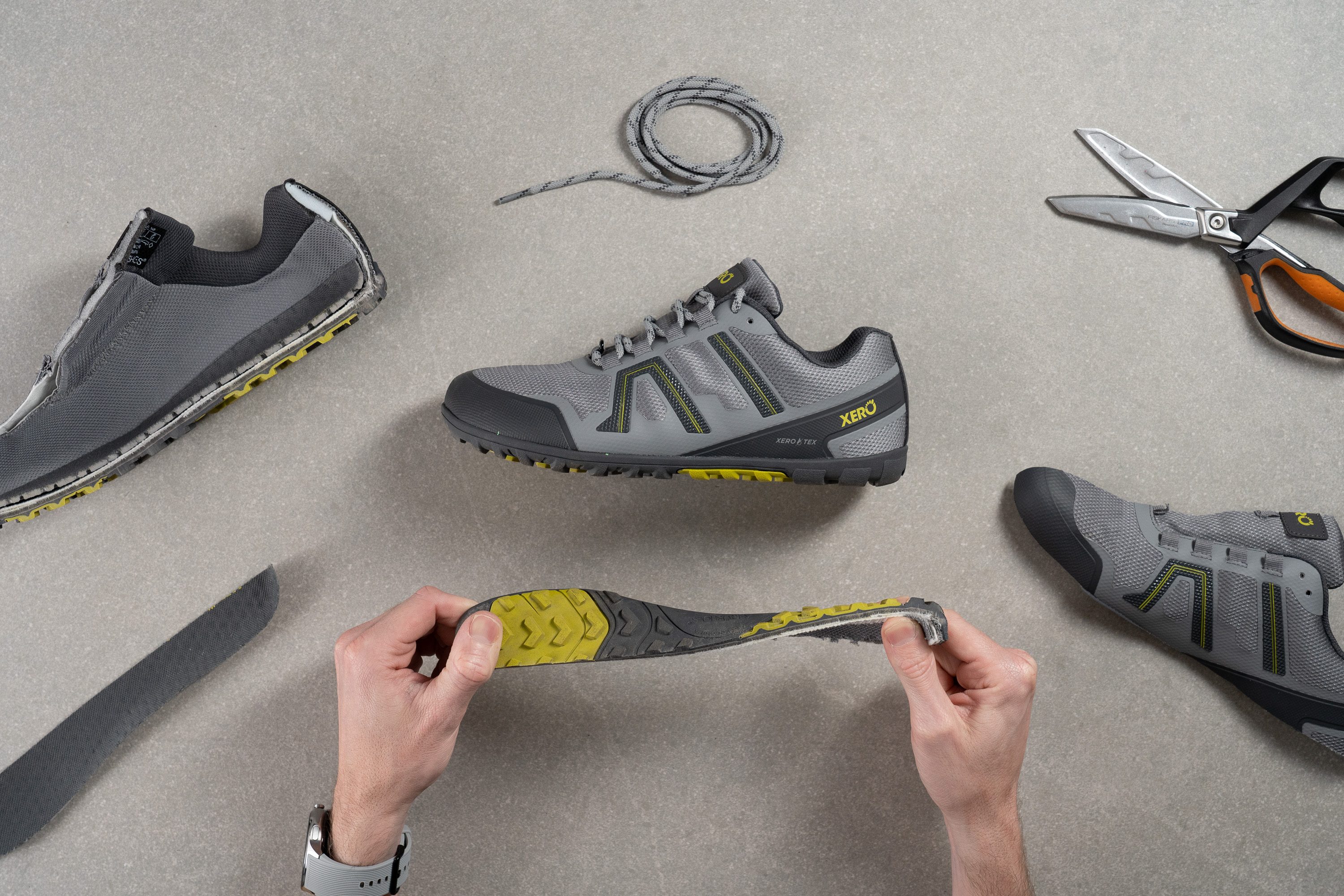
Cushioning
Heel stack
Xero Shoes claims an 8 mm stack height for this shoe, but our digital calipers disagree. As shown in our measurement, the stack height is actually 14.6 mm. While still minimalist, it doesn’t align with their claims, which probably excludes the insole and lugs.
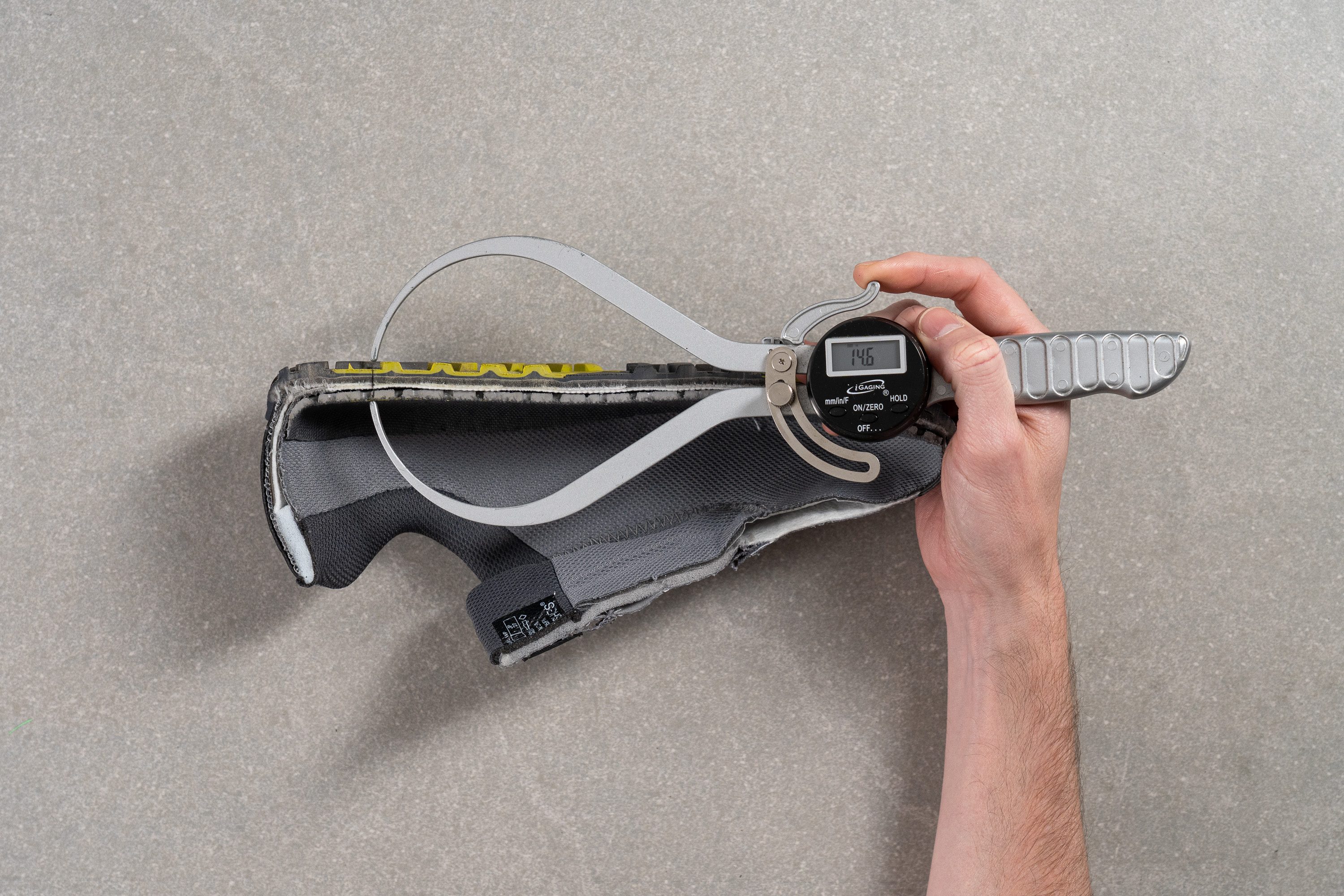
| Mesa Trail WP | 14.6 mm |
| Average | 32.6 mm |
Forefoot stack
The forefoot measures 13.4 mm—just 1.2 mm less than the heel—which is in line with our expectations.
It remains close to the ground while providing more protection than other minimalist shoes. In our view, the actual 13-14 mm stack, instead of the claimed 8 mm, is a welcome improvement.
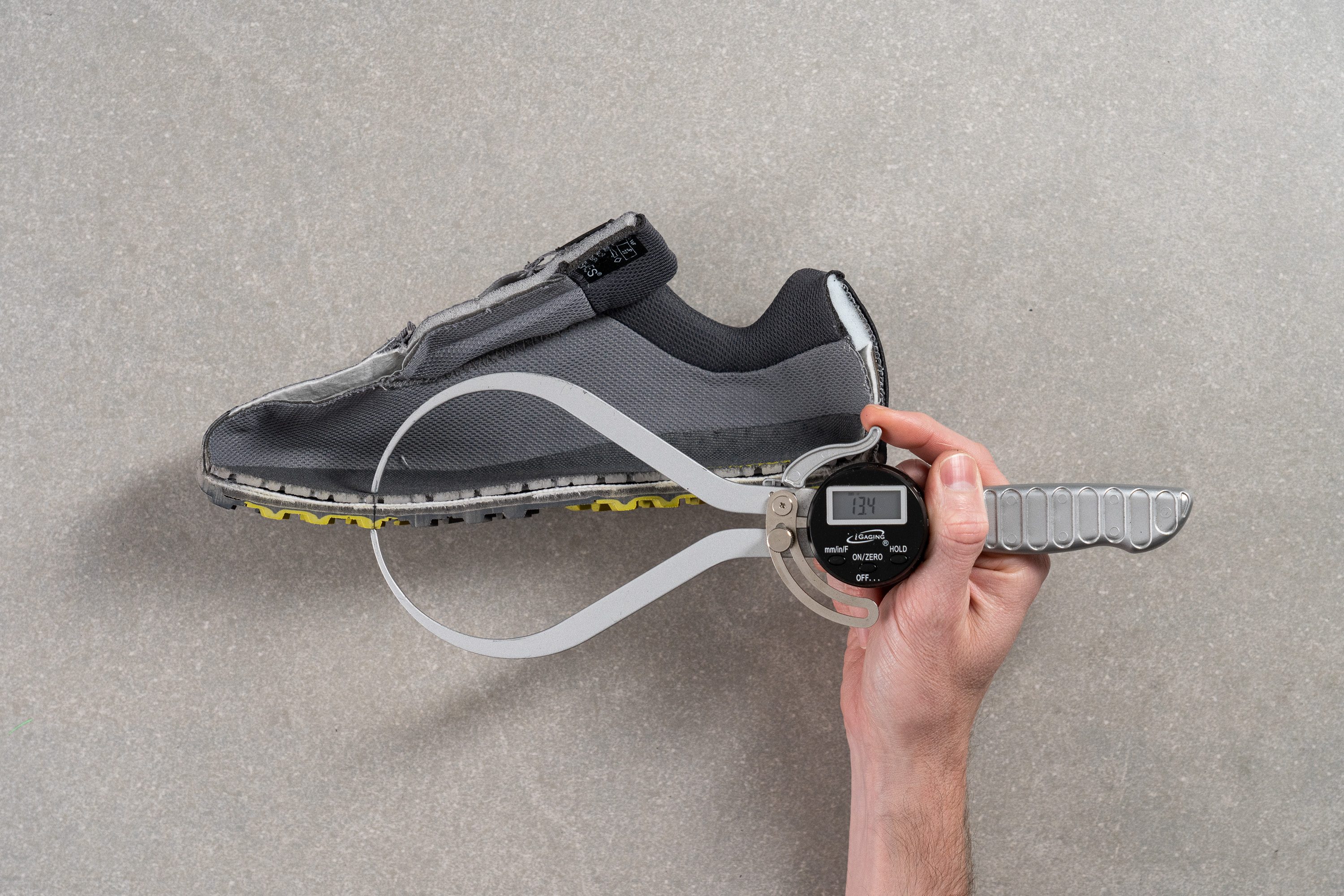
| Mesa Trail WP | 13.4 mm |
| Average | 25.1 mm |
Drop
The expected 0-mm drop is actually 1.2 mm, which we still consider a zero-drop running shoe. A difference of 1.2 mm is negligible and unnoticeable, likely due to manufacturing tolerances or the lug design at our measurement points—the same World Athletics-official guidelines.
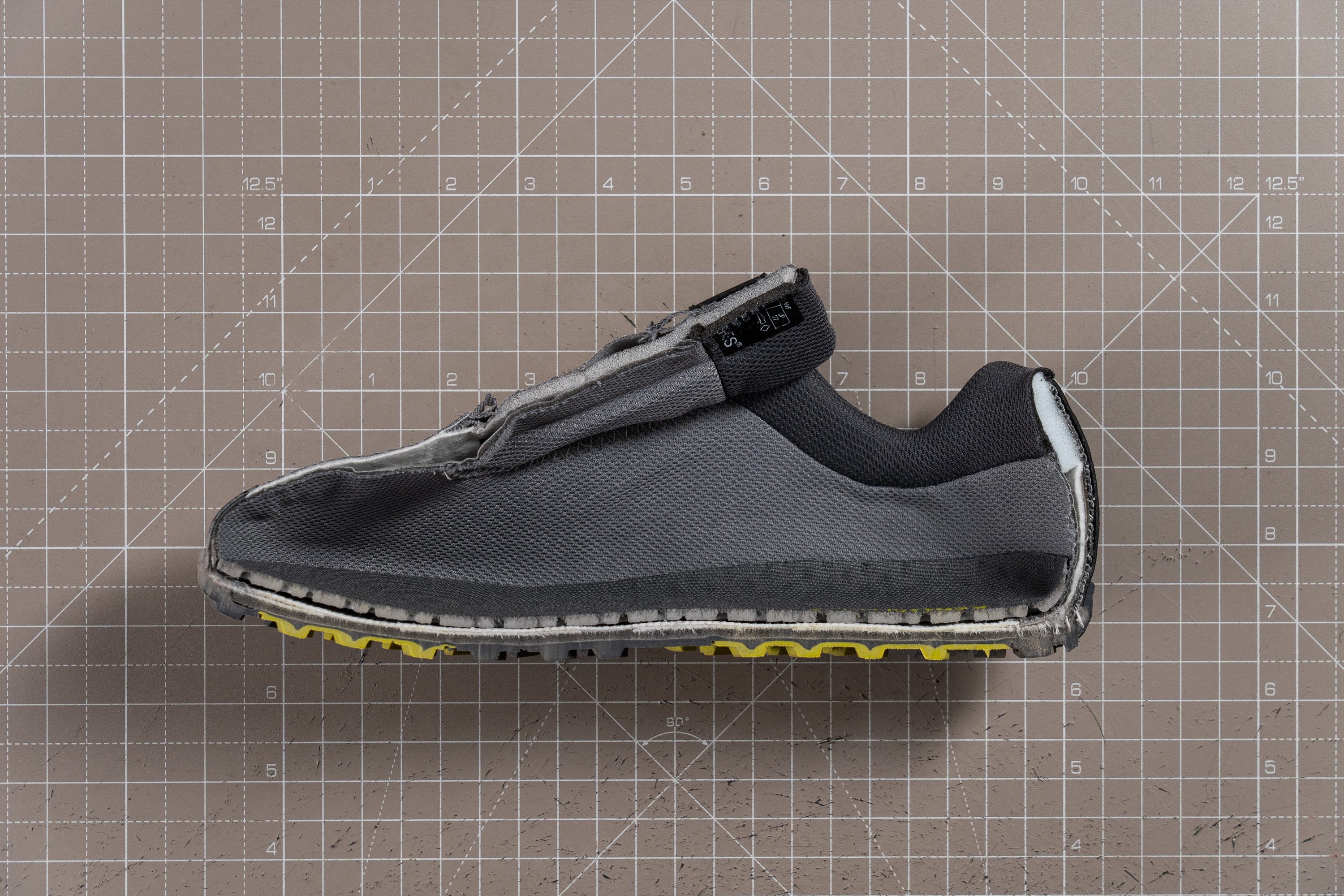
| Mesa Trail WP | 1.2 mm |
| Average | 7.6 mm |
Midsole softness
Unlike other minimalist shoes, the Xero Shoes Mesa Trail WP includes a thin EVA-based TrailFoam midsole, which we tested on our Shore A durometer and measured at 26.0 HA—a surprisingly soft value for a minimalist shoe. This cloud-soft layer provides extra comfort and protection against rocks, roots, and other trail hazards.
In our view, this addition significantly benefits the shoe, helping to keep the soles of the feet more comfortable, especially during long runs or hikes. Its light-cushioning design strikes a practical balance between minimalism and comfort.
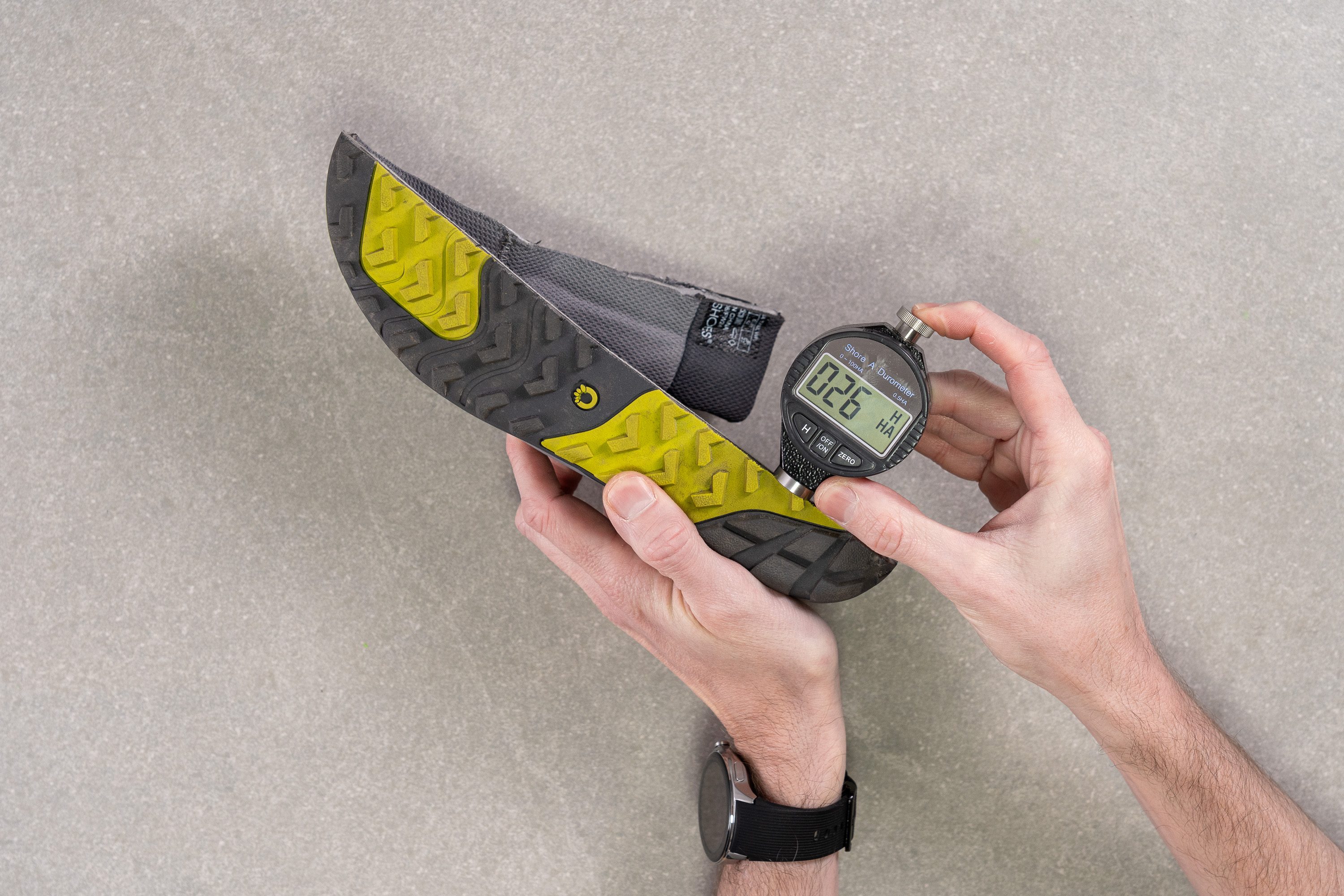
| Mesa Trail WP | 26.0 HA |
| Average | 22.0 HA |
Rocker
The rocker on this shoe is minimal—there’s hardly any noticeable curvature, just as expected in a minimalist shoe. This natural design aligns perfectly with the barefoot-style approach we want in a Xero shoe.
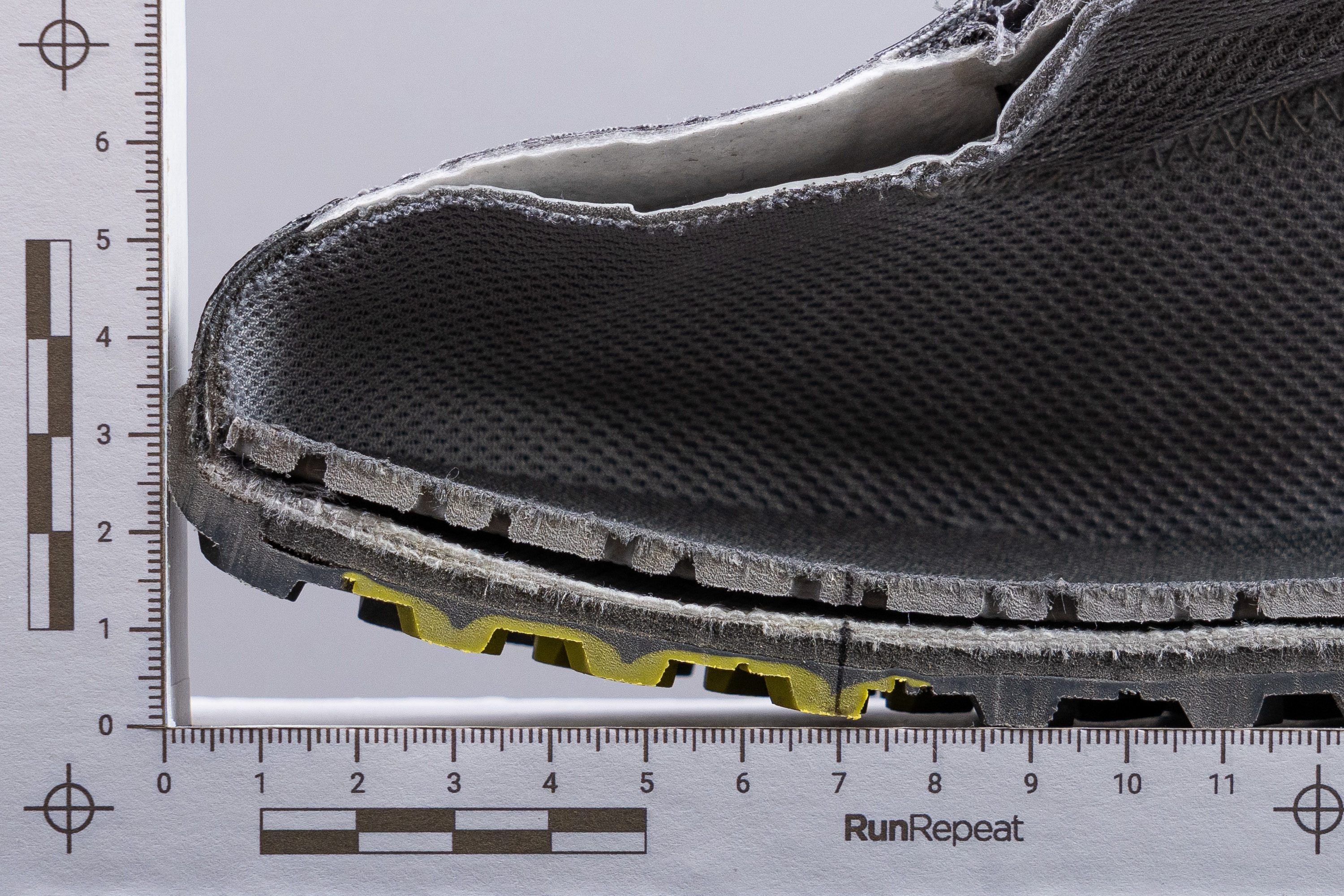
Size and fit
Size
Xero Shoes Mesa Trail WP fits slightly small (14 votes).
Internal length
| Mesa Trail WP | 262.2 mm |
| Average | 269.0 mm |
Toebox width - widest part
The Mesa Trail WP offers a roomy yet low-volume toebox that may feel slightly snug vertically. While its fit aligns with most minimalist shoes, the XeroTex waterproof upper introduces a challenge with its lack of stretch, making it a bit restrictive for those with higher-volume feet.
In terms of width, however, it simply excels. We measured an impressive 100.5 mm at the widest part of the toebox—an extraordinary result for barefoot-style footwear. Based on our experience, it’s rare for these shoes to exceed the 100-mm threshold.
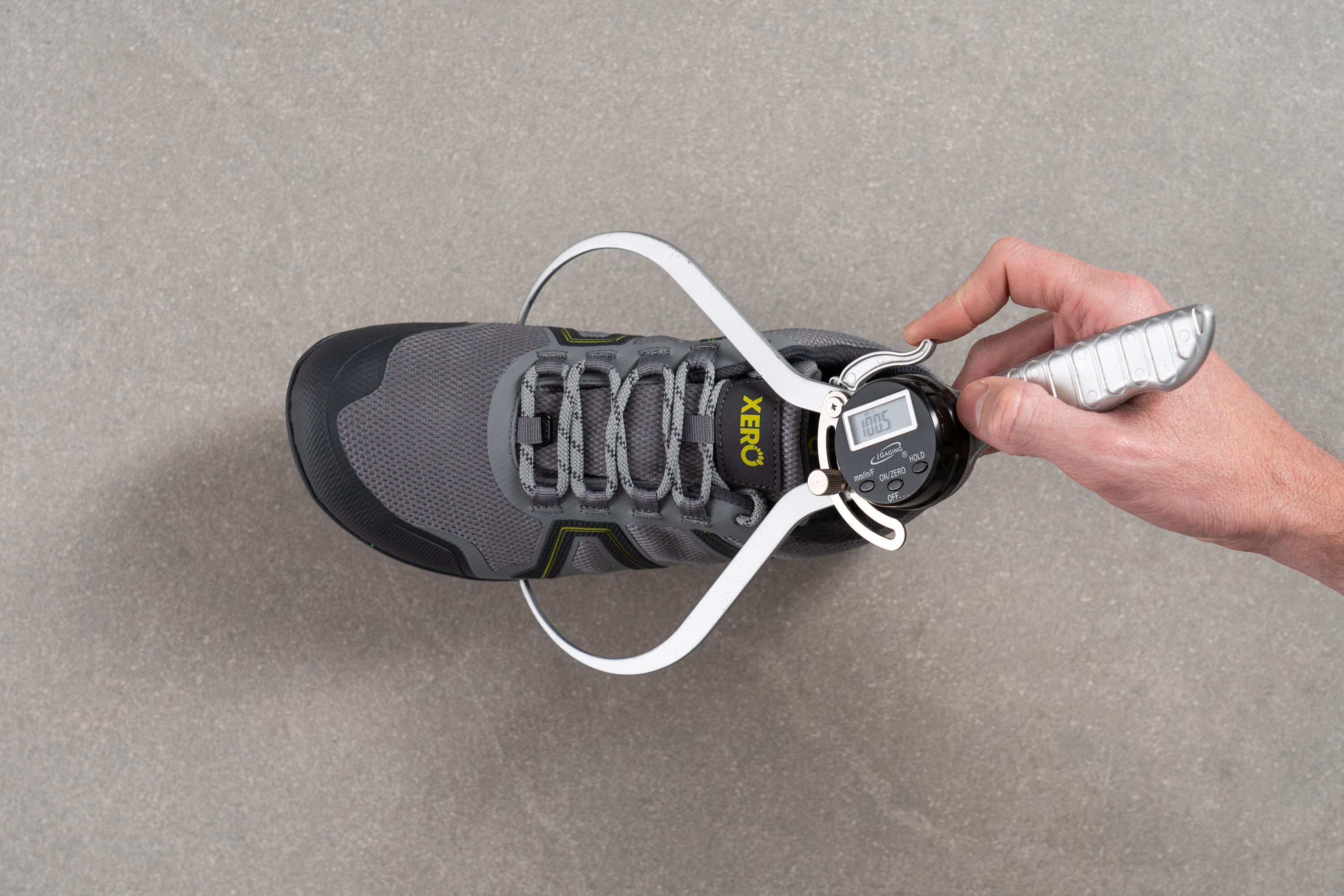
This test follows an older methodology, which is why you don't see recently tested shoes in the chart. Results from different methodologies can not be compared.
| Mesa Trail WP | 100.5 mm |
| Average | 98.9 mm |
Toebox width - big toe
We measured the big toe area at a remarkable 87.4 mm, reflecting the foot-shaped design of this minimalist shoe. According to our analysis, it’s a few millimeters wider than average anatomical toeboxes, which adds a practical benefit.
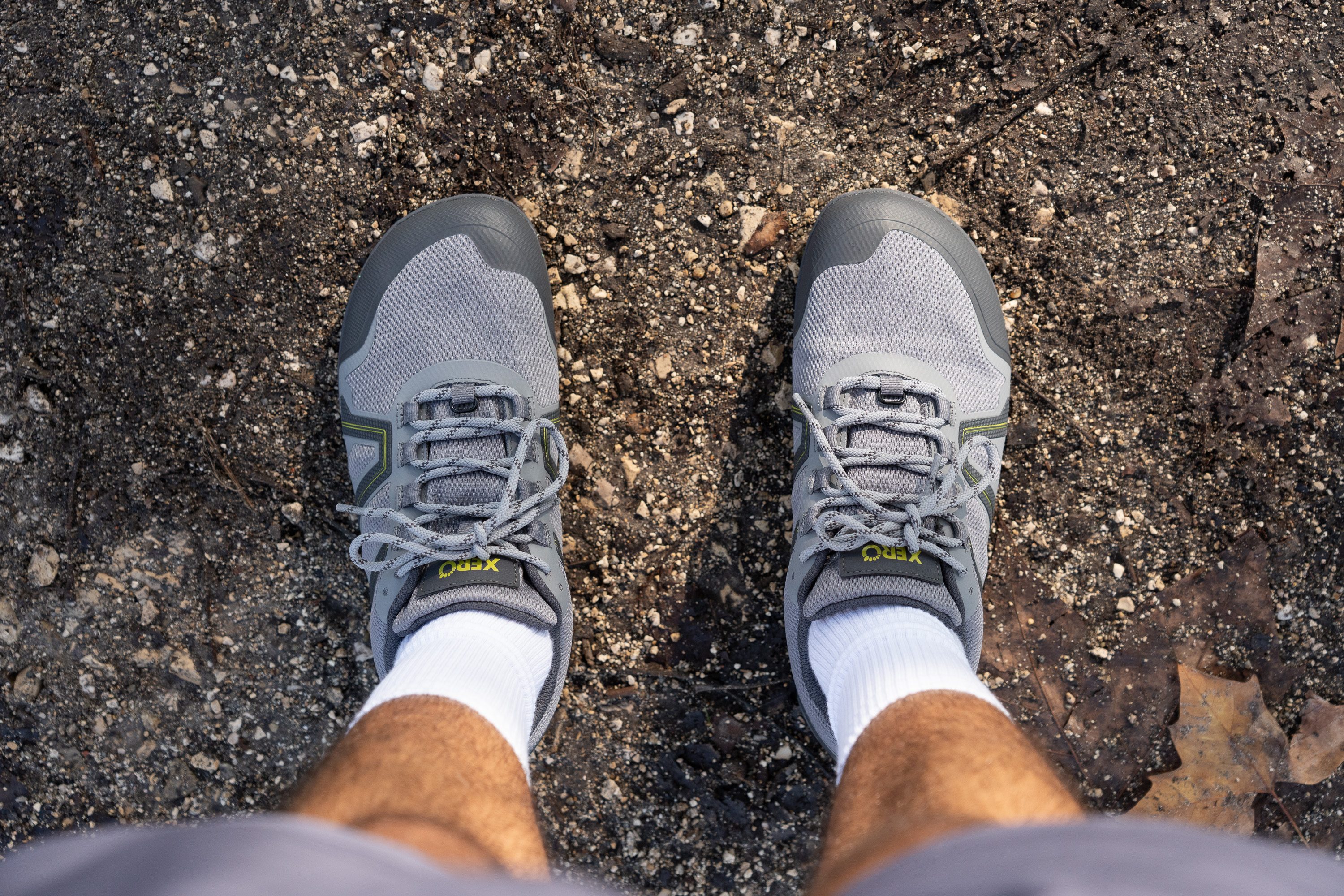
This extra width likely accommodates thicker, insulating socks—perfect for super-cold conditions common with waterproof footwear. In our view, this thoughtful design balances functionality and comfort, ensuring a snug yet spacious fit even when layering up for winter adventures.
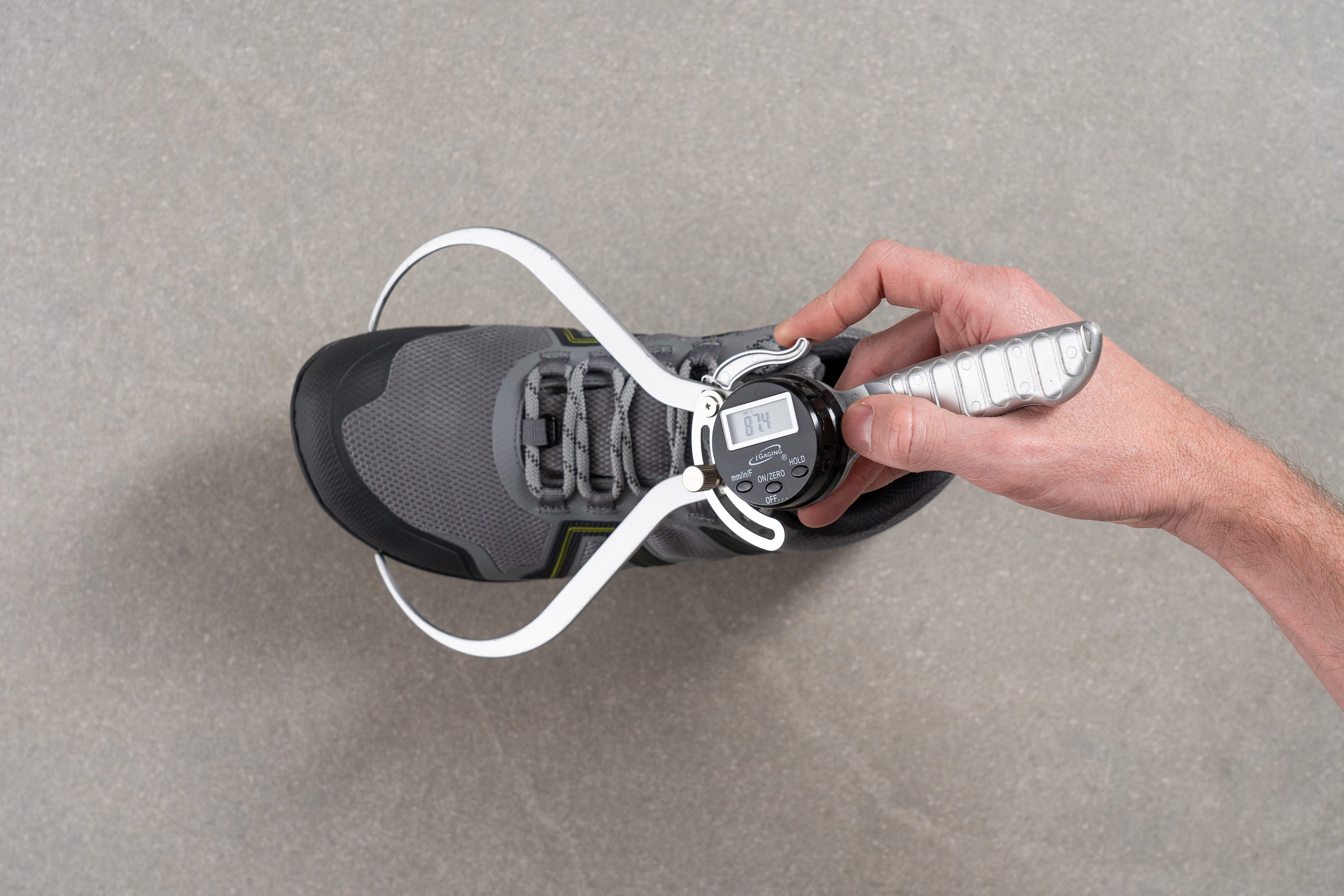
This test follows an older methodology, which is why you don't see recently tested shoes in the chart. Results from different methodologies can not be compared.
| Mesa Trail WP | 87.4 mm |
| Average | 79.3 mm |
Traction / Grip
Lug depth
For being a shoe that runs so close to the ground, the 3.8-mm lugs are surprisingly deep, though they align with the average measurement when compared to most trail shoes on the market.
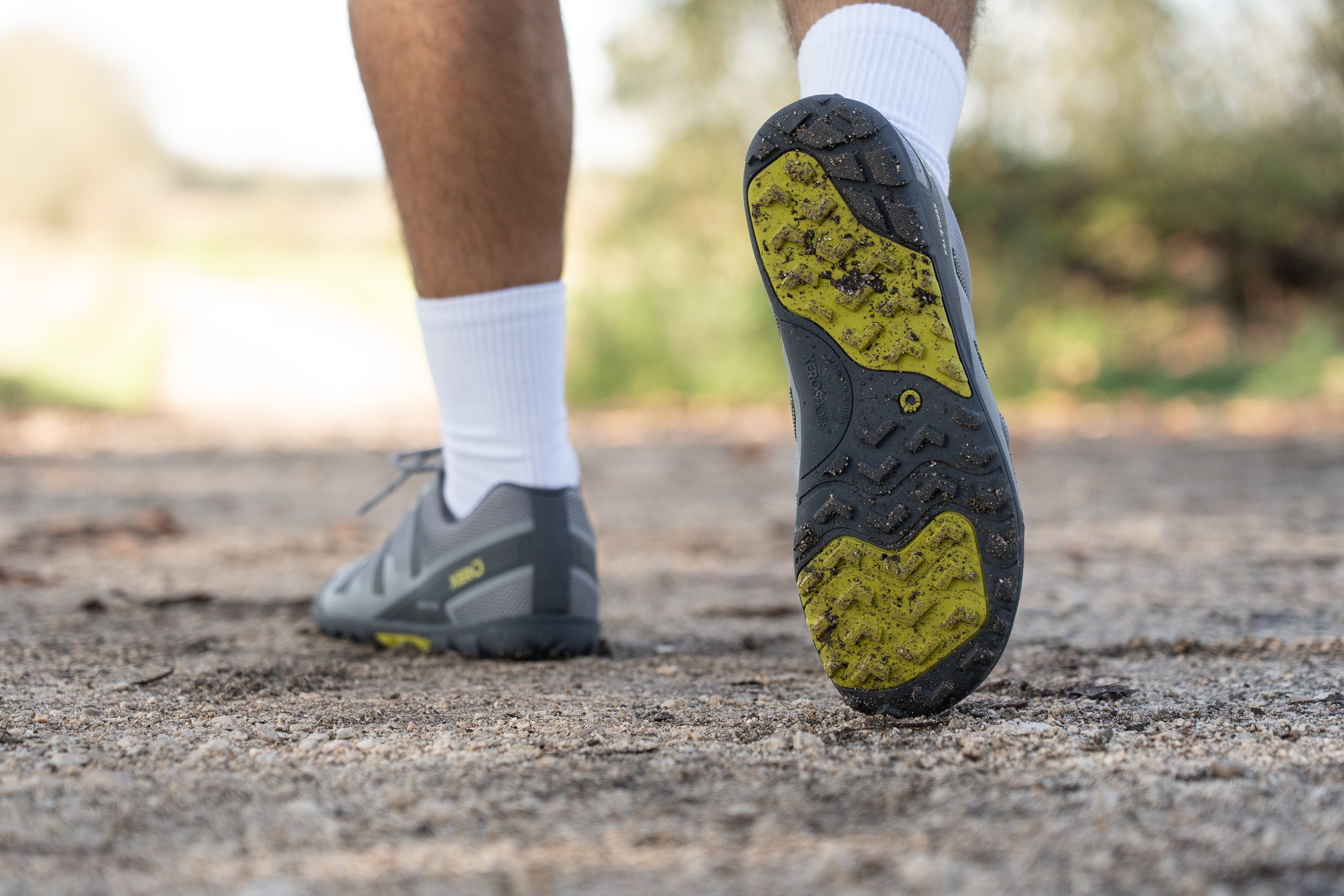
With these rugged-yet-flexible lugs, we found that the Mesa Trail WP excels on easy and moderate trails but might fall slightly short on highly-technical terrain. That said, we believe it remains the best minimalist choice for tackling challenging mountain paths.
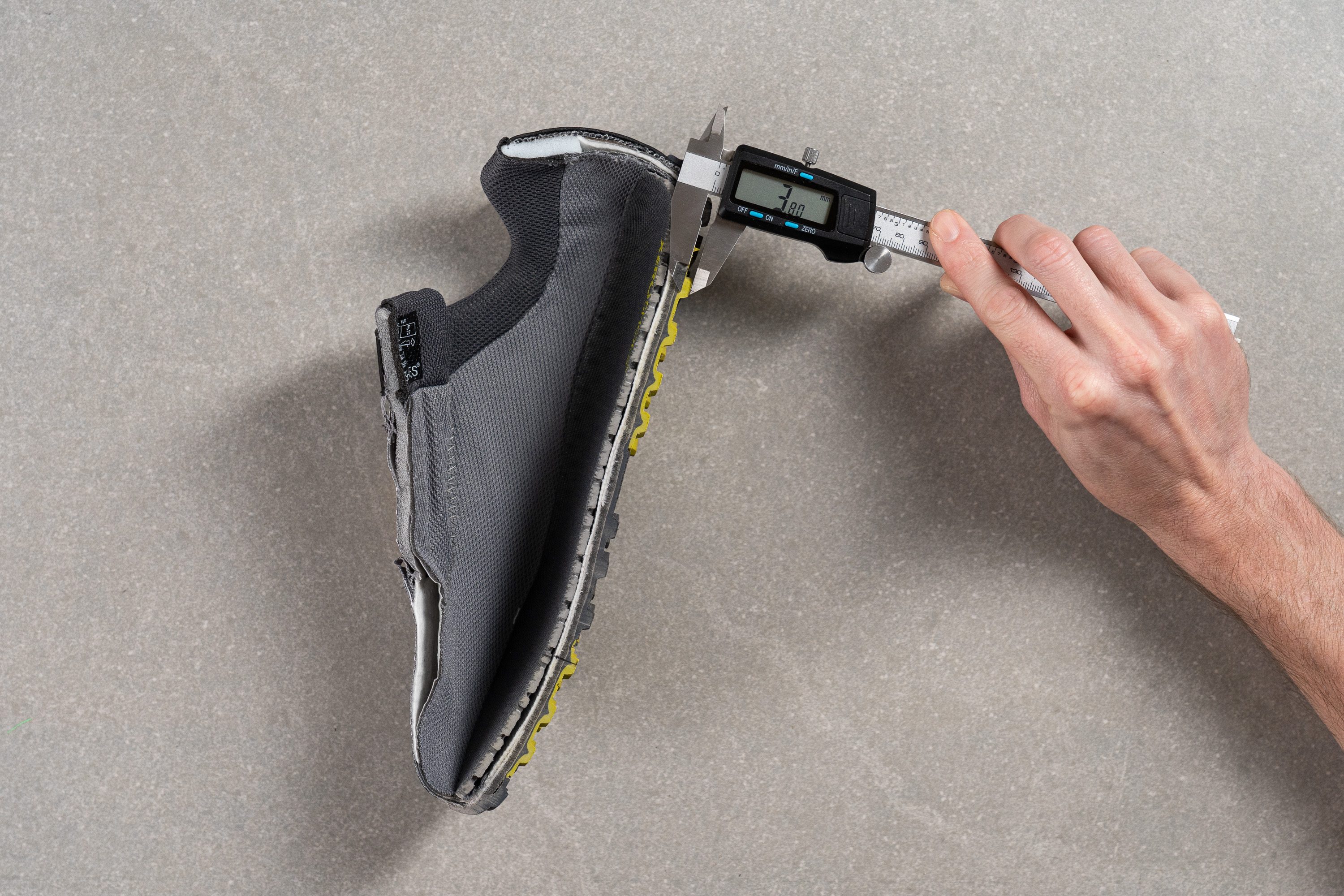
| Mesa Trail WP | 3.8 mm |
| Average | 3.5 mm |
Flexibility / Stiffness
At 12.7N, the Xero Shoes Mesa Trail WP is a obviously a super-flexible running shoe, but it feels slightly stiff compared to other minimalist designs. This is mainly due to its thin midsole and rugged outsole.
This test follows an older methodology, which is why you don't see recently tested shoes in the chart. Results from different methodologies can not be compared.
| Mesa Trail WP | 12.7N |
| Average | 27.1N |
Weight
If there’s one issue that consistently stands out with almost every Xero Shoes model we test in the lab, it’s the weight. In our view, this is a significant area for improvement that cannot be overlooked.
We’re convinced that a minimalist trail shoe shouldn’t weigh 9.7 oz or 274g like the Mesa Trail WP. This weight is nearly identical to the On Cloudsurfer Trail, which features a thick, cushion-packed midsole.
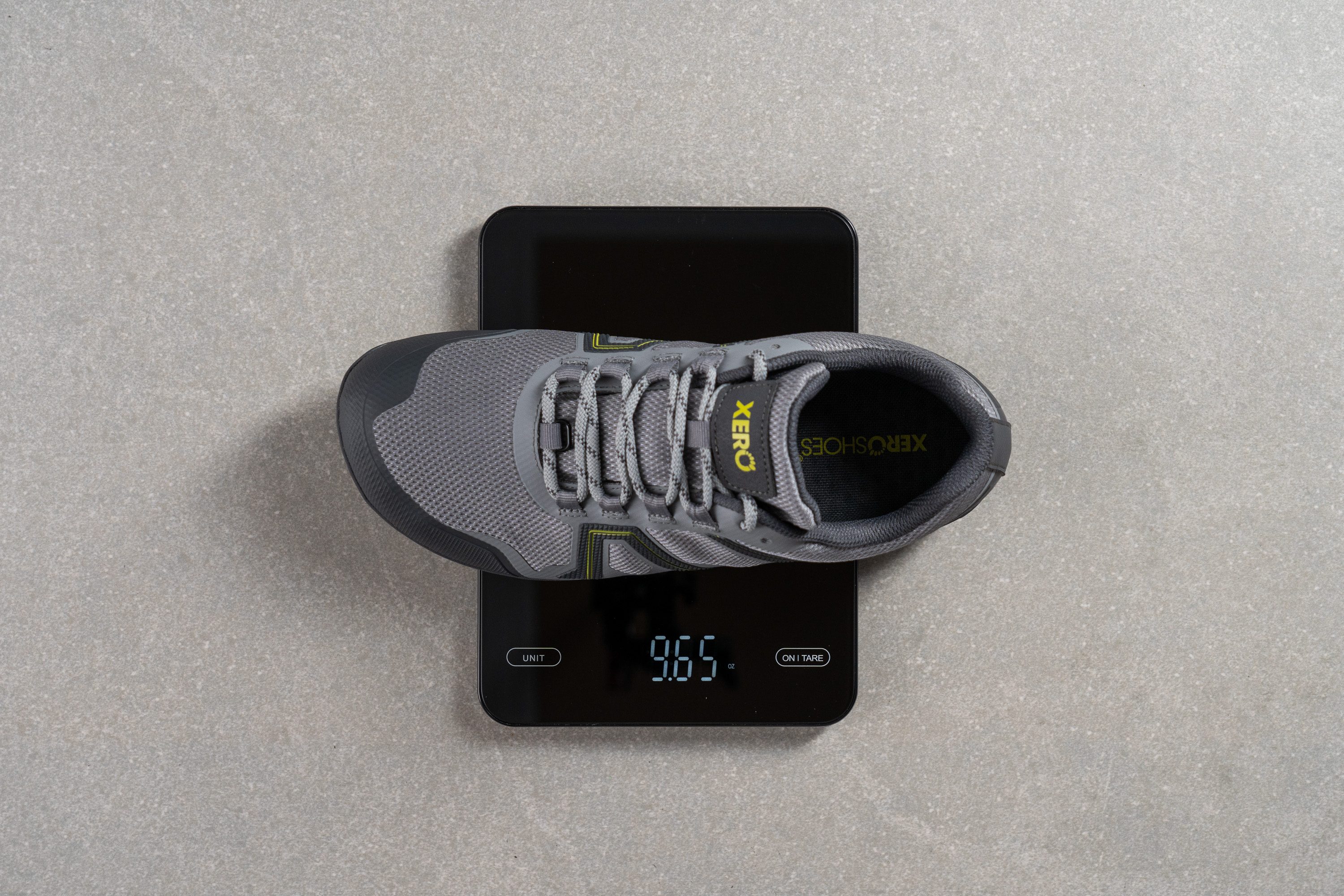
| Mesa Trail WP | 9.7 oz (274g) |
| Average | 10.2 oz (289g) |
Breathability
Waterproof membranes, like the one in this shoe or the well-known Gore-Tex, rely on microscopic pores smaller than water droplets but larger than vapour molecules, allowing air and moisture to escape while keeping water out—that’s the theory.
In real life, we found in the lab that these ultra-fine pores severely limit breathability. During our smoke test, we discovered significant airflow restrictions and rated the XeroTex upper at just 1/5, the lowest score possible. The light test confirmed this, as no light passed through the multi-layer mesh, highlighting its poor airflow.
Under the microscope, we observed a thick material that does a great job at repelling water and keeping feet dry.
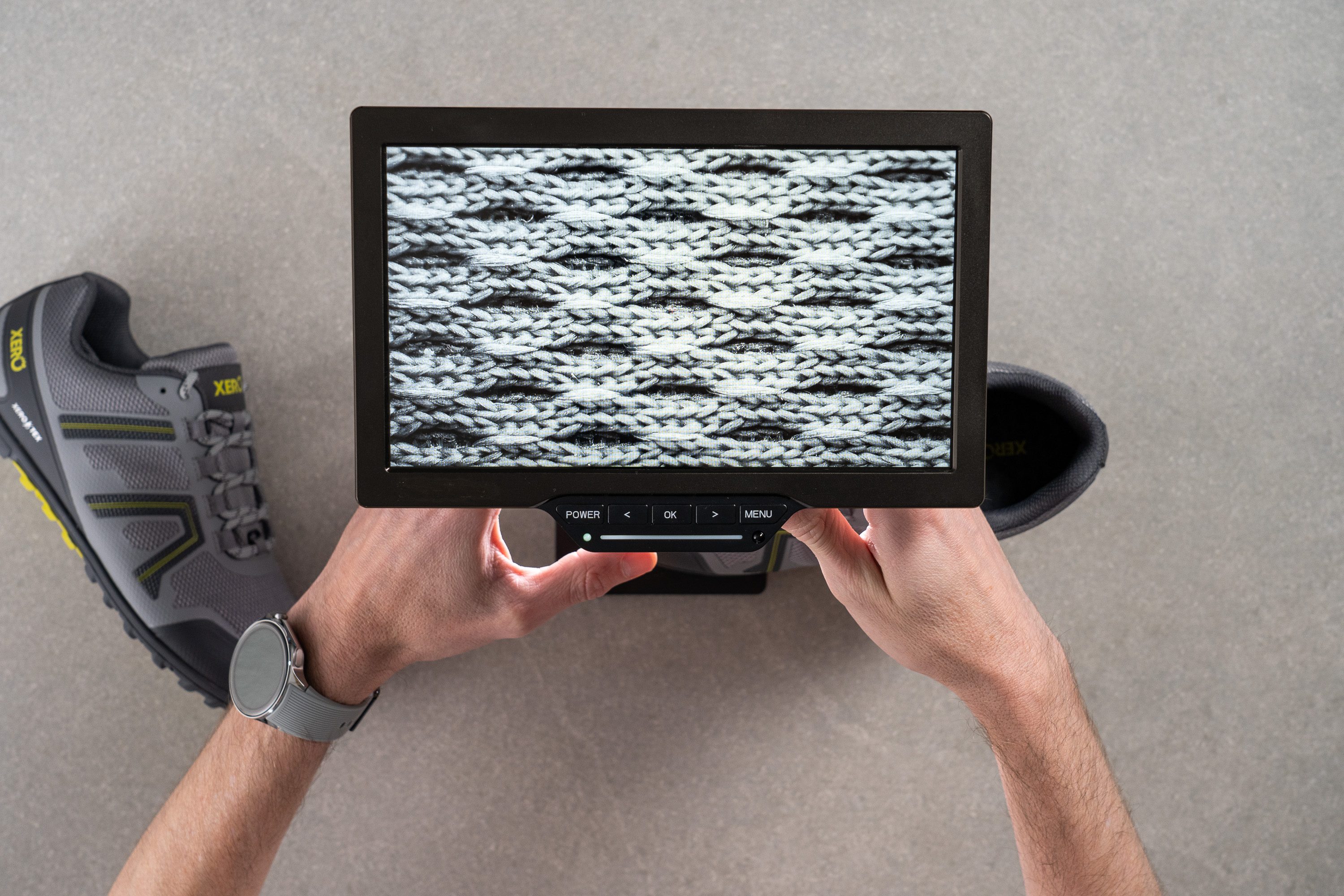
In a regular running shoe, these openings are responsible for airflow. However, in this case, they had to be sealed with a secondary layer to keep water out of the toebox.
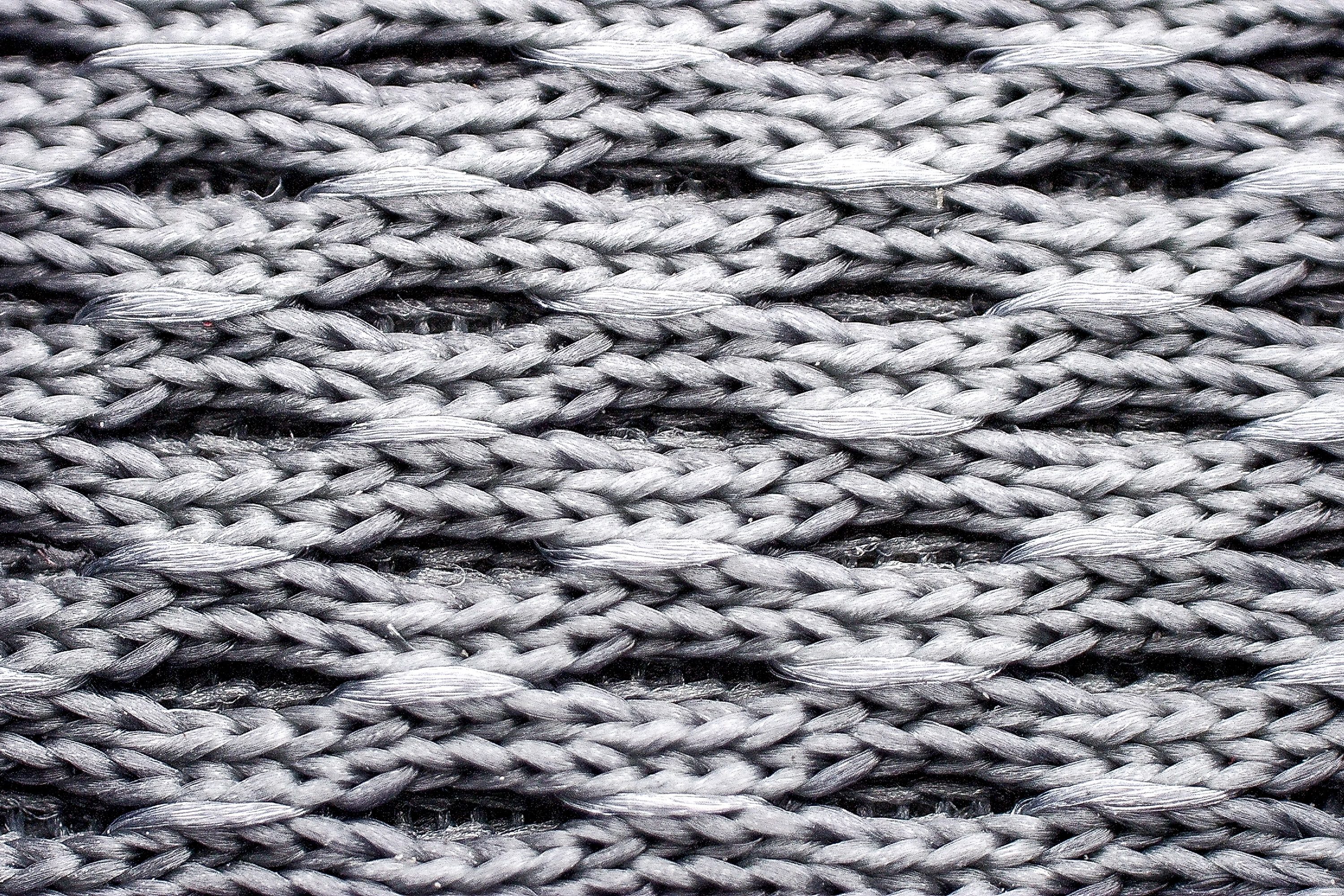
For those curious about the upper, we found it to be somewhat rigid and less comfortable despite the padded heel and tongue. Compared to most minimalist shoes, it feels less flexible, which might discourage some users.
| Mesa Trail WP | 1 |
| Average | 3.3 |
Stability
Lateral stability test
In our experience, the Mesa Trail WP delivers the nice stability feel of minimalist shoes, which might feel unusual for newcomers to these shoes. Despite their narrow build, the low-to-the-ground design provides a balanced-yet-secure running experience.
And we found that the XeroTex waterproof upper—slightly rigid in its construction—adds a stability-enhancing touch that's noticeably effective in terms of support.
Torsional rigidity
With its midsole, thick outsole, and rigid upper, the torsional rigidity of this shoe increased from the usual 1/5 found in minimalist shoes to a slightly higher 2/5.
| Mesa Trail WP | 2 |
| Average | 3.6 |
Heel counter stiffness
The heel counter gave us a similar impression, with its slightly structured design and decent padding—qualities that earned it a 2/5 rating.
| Mesa Trail WP | 2 |
| Average | 3 |
Midsole width - forefoot
The forefoot measures 104.1 mm, making it noticeably narrower than the average running shoe, but in our experience, it still aligns with minimalist standards.
We also found that the midfoot’s non-tapered design enhances stability and provides a secure feel, especially on flat terrain.
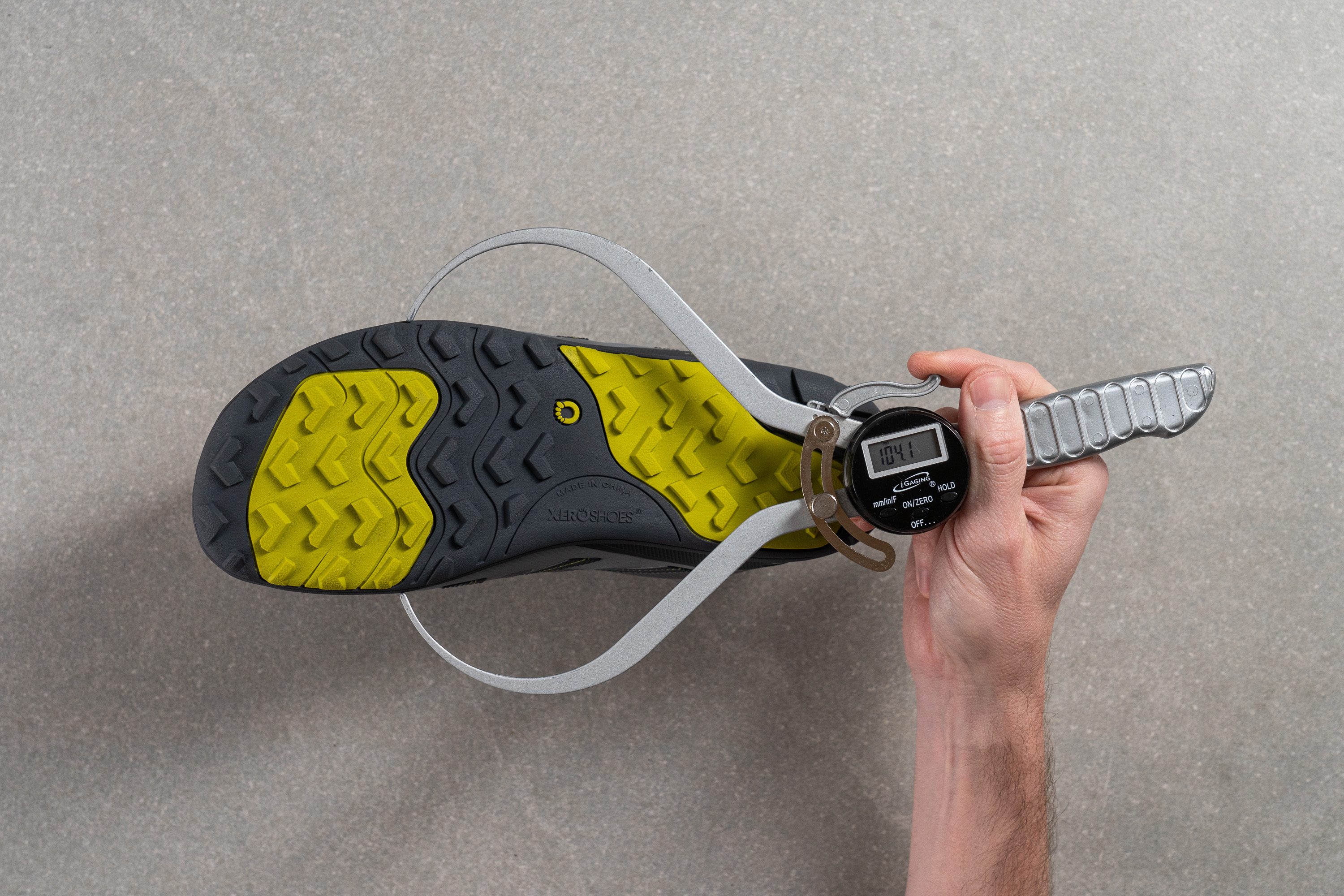
| Mesa Trail WP | 104.1 mm |
| Average | 112.8 mm |
Midsole width - heel
The heel is exceptionally narrow at 79.6 mm, as expected in a barefoot-like design. However, in a shoe like this, landing on the heel should rarely be a concern for most runners.
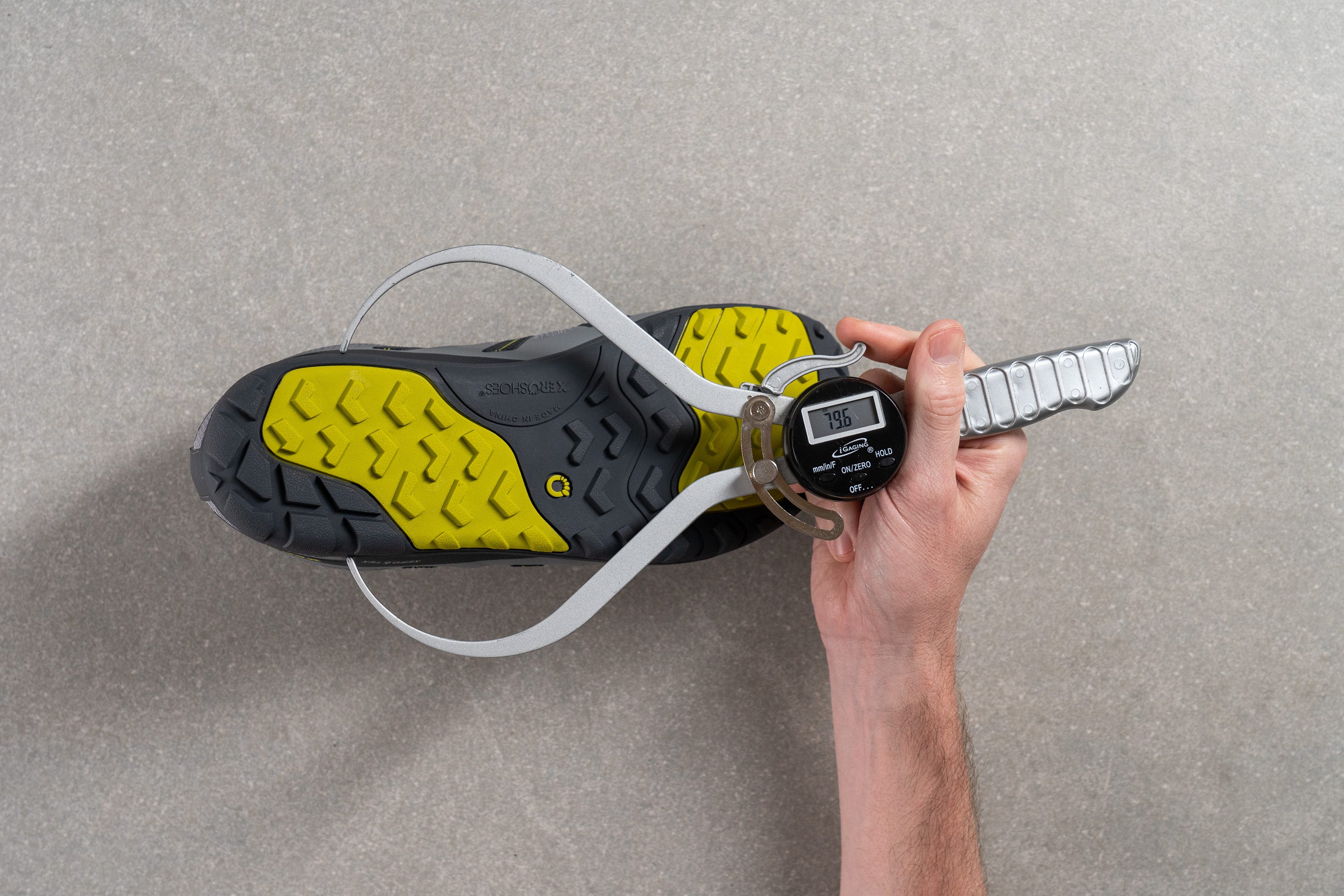
| Mesa Trail WP | 79.6 mm |
| Average | 89.9 mm |
Durability
Toebox durability
On the bright side, we found solid results in our durability test. After testing with the Dremel, we rated the damage at an average 3/5. While not exceptional, it showed reliable wear-and-tear resistance.
It's also worth noting that the reinforced toe bumper plays a key role in boosting durability, providing a rugged layer that prevents most damage from small rocks.
| Mesa Trail WP | 3 |
| Average | 3.1 |
Heel padding durability
The heel padding scored a disappointing 1/5, but with the shoe's secure lockdown, heel slippage shouldn’t be an issue. We believe that, despite the low rating, it likely won’t affect most users. Nonetheless, it's still a bad result.
| Mesa Trail WP | 1 |
| Average | 3 |
Outsole hardness
Xero Shoes opted for a noticeably firm rubber, so it came as no surprise when our durometer registered 89.5 HC.
While the grip isn’t the best we’ve tested in a trail shoe, it performs well in all conditions, including mud and grass, thanks to its low-to-the-ground design.
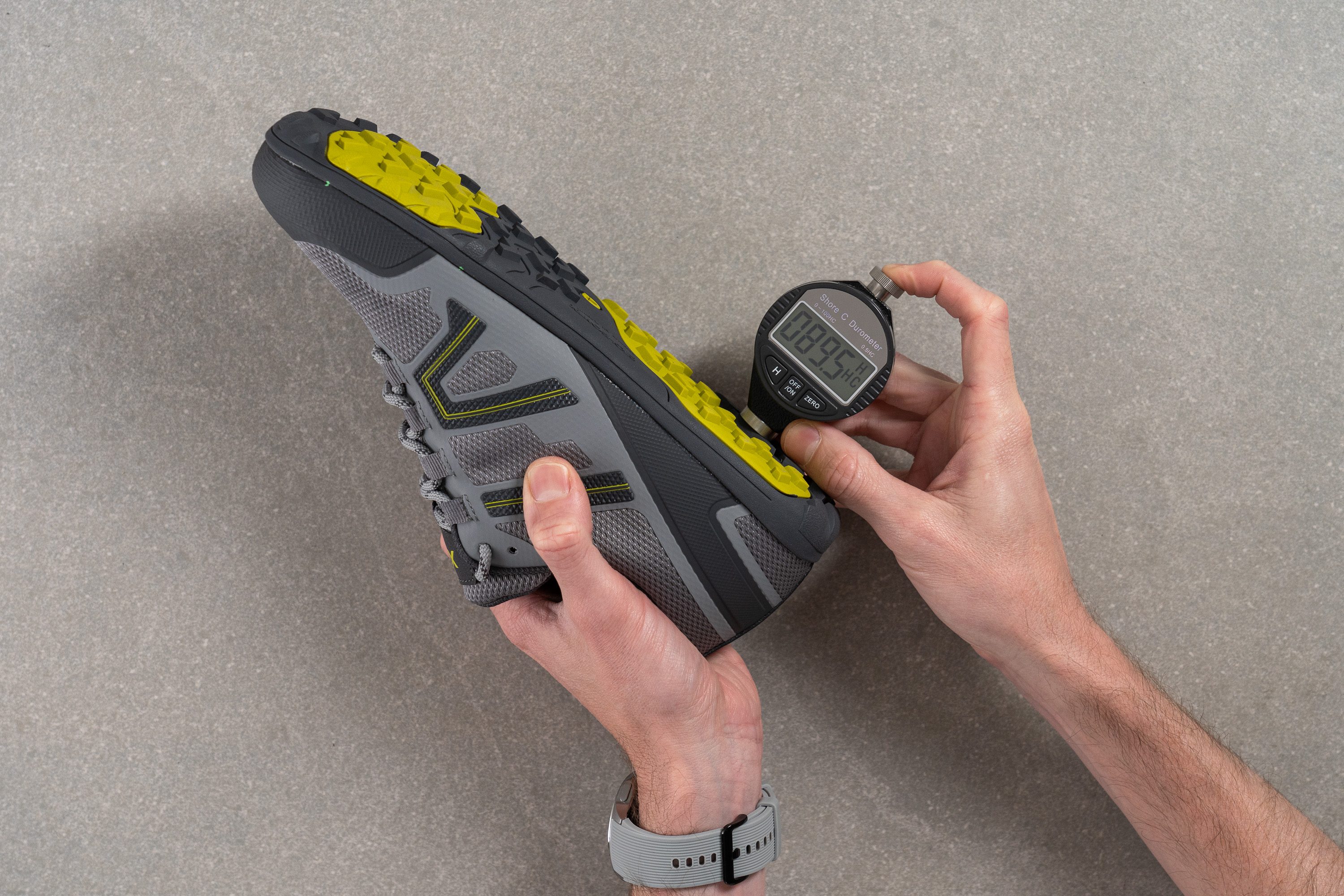
| Mesa Trail WP | 89.5 HC |
| Average | 85.8 HC |
Outsole durability
Given the hard rubber, we expected at least decent durability, but the Mesa Trail WP fell short. After lifting our Dremel, we measured 1.2 mm of wear—leaving room for improvement in this area.
| Mesa Trail WP | 1.2 mm |
| Average | 0.9 mm |
Outsole thickness
The outsole—excluding the lugs—is relatively thick at 3.1 mm, which we think is a great feature for this shoe. While it adds some weight, protecting the soles of your feet is crucial for trail adventures.
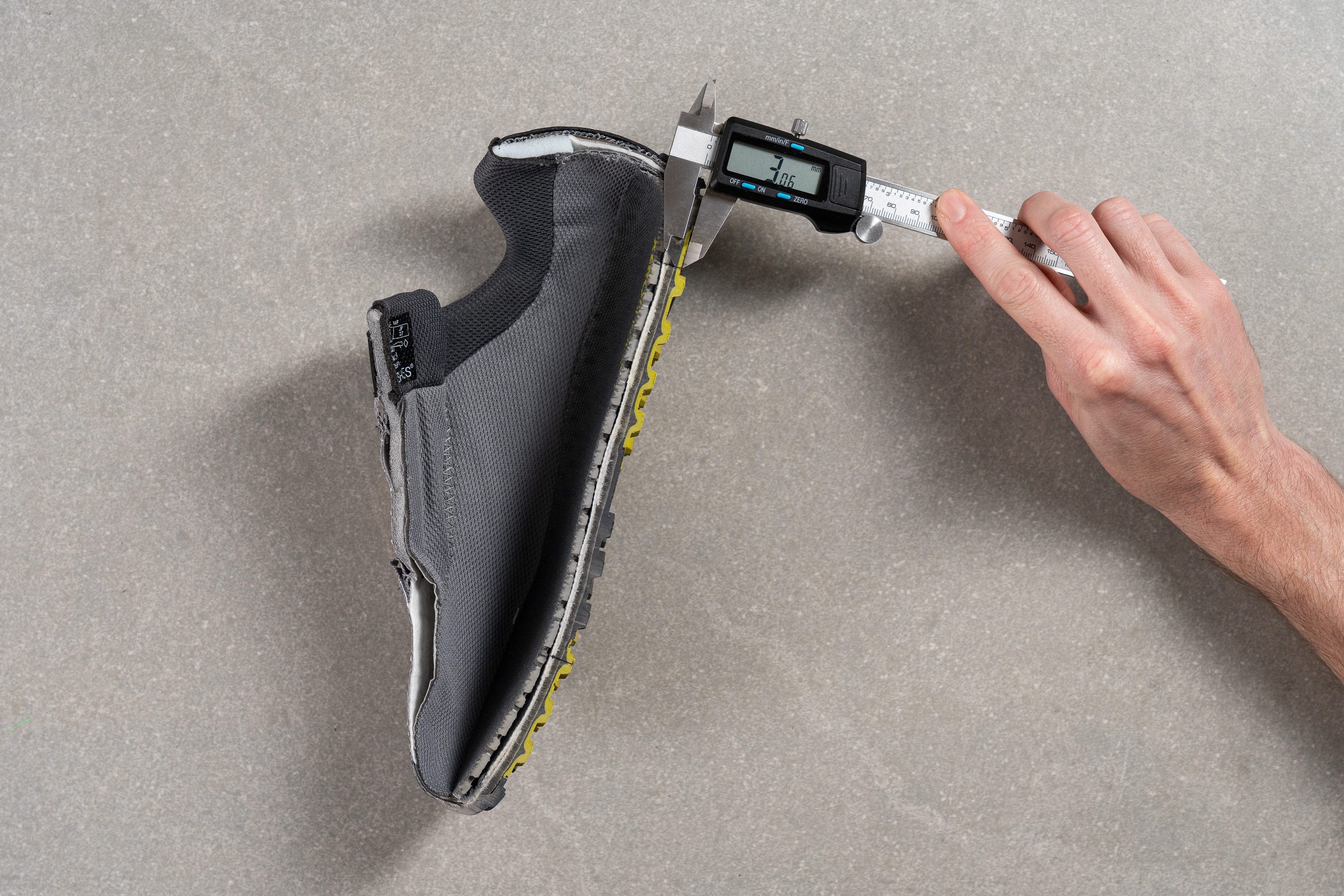
| Mesa Trail WP | 3.1 mm |
| Average | 2.2 mm |
Misc
Insole thickness
We found a thin yet well-cushioned 3.8 mm insole that enhances the midsole's comfort.
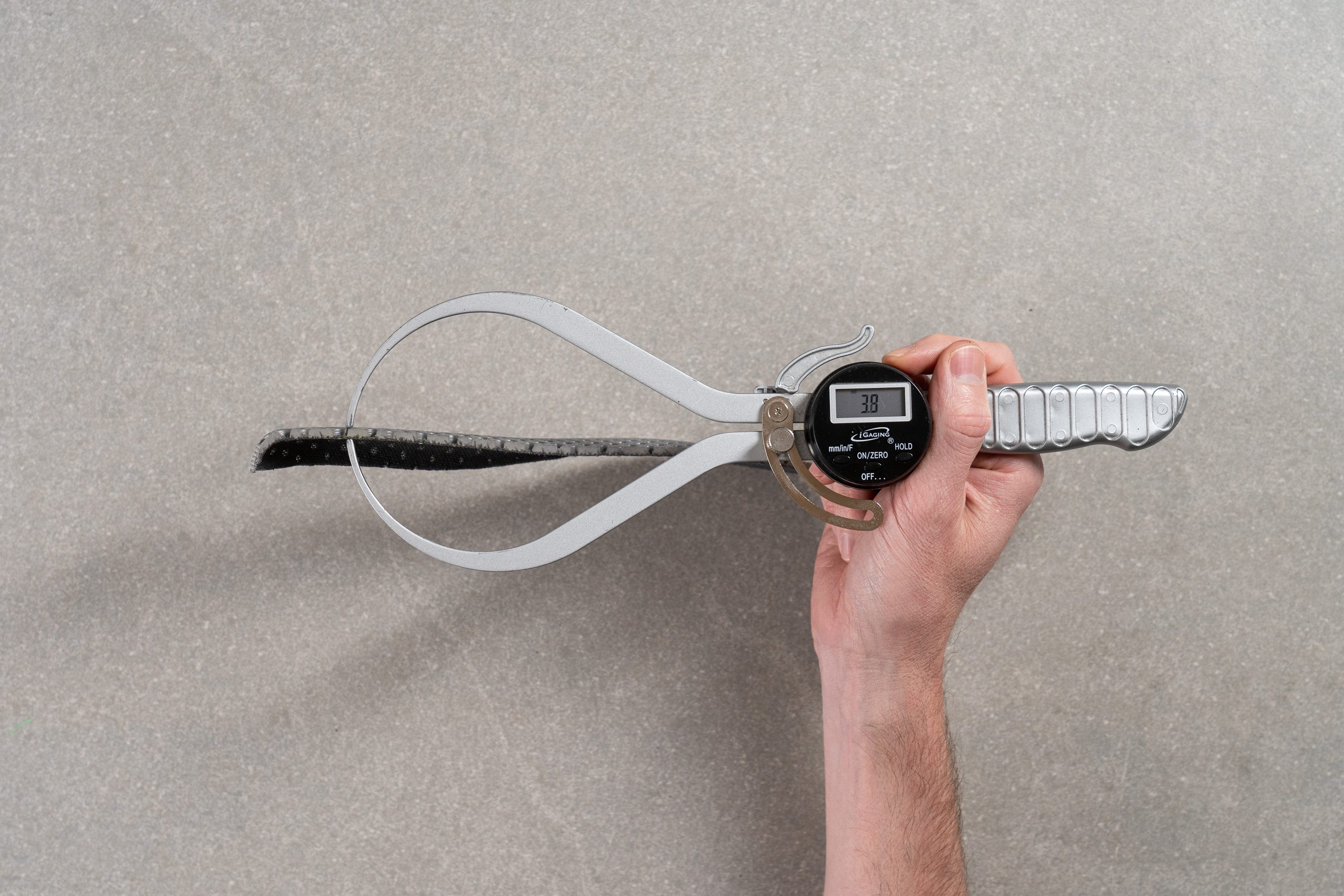
| Mesa Trail WP | 3.8 mm |
| Average | 4.7 mm |
Removable insole
The removable insole includes multiple ventilation holes, providing a small but crucial relief in airflow—especially important since the toebox lacks any ventilation.
| Mesa Trail WP | Yes |
Midsole softness in cold (%)
As a waterproof running shoe, the Mesa Trail WP is ideal for cold days, so we tested how the foam reacts to low temperatures. Fortunately, the change was minimal—just 21.2% after 20 minutes in our freezer!
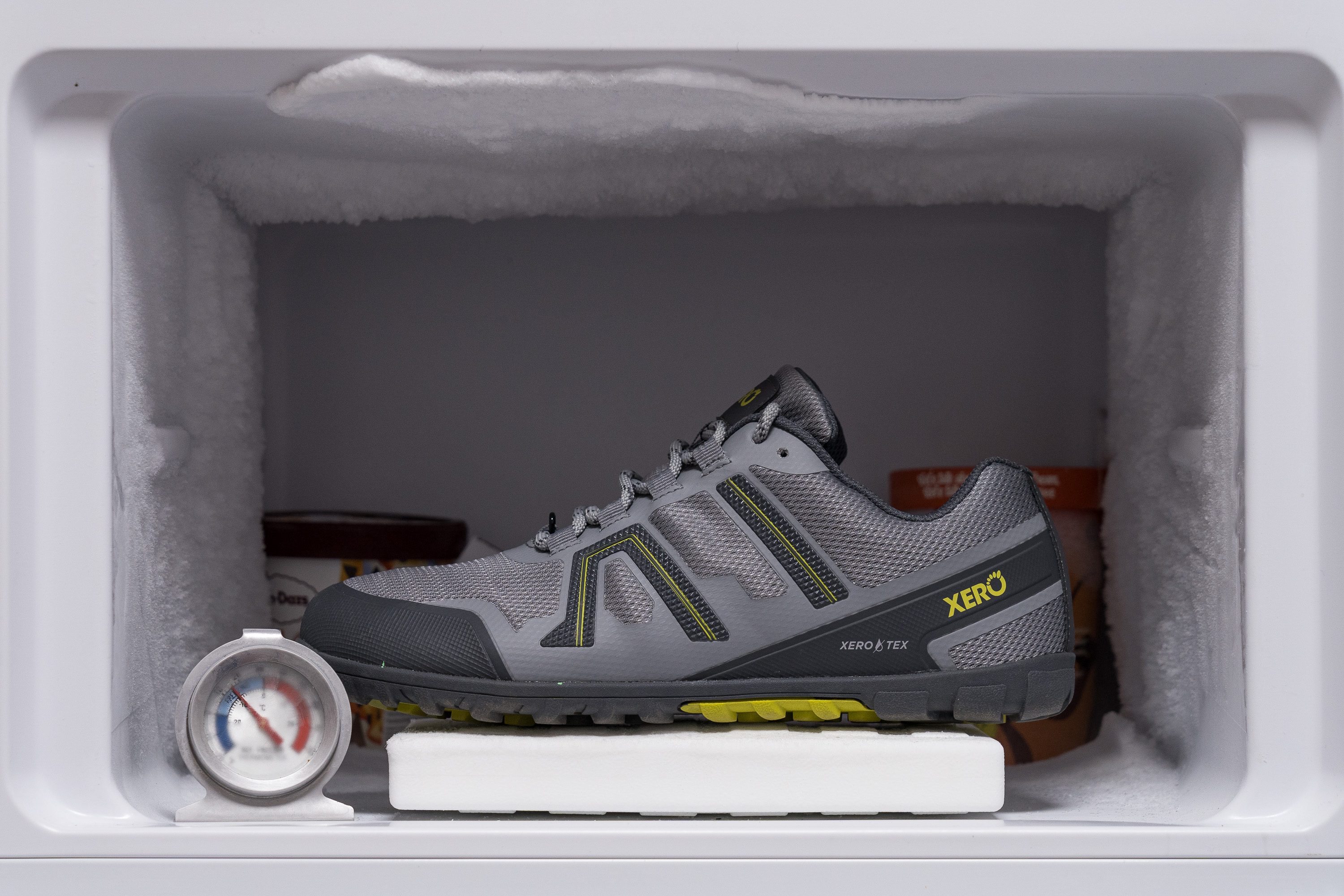
| Mesa Trail WP | 21% |
| Average | 26% |
Reflective elements
We couldn’t find any reflective elements on the Mesa Trail WP when testing it with our lights, which was unexpected since other Xero Shoes' road models include them. Weird!
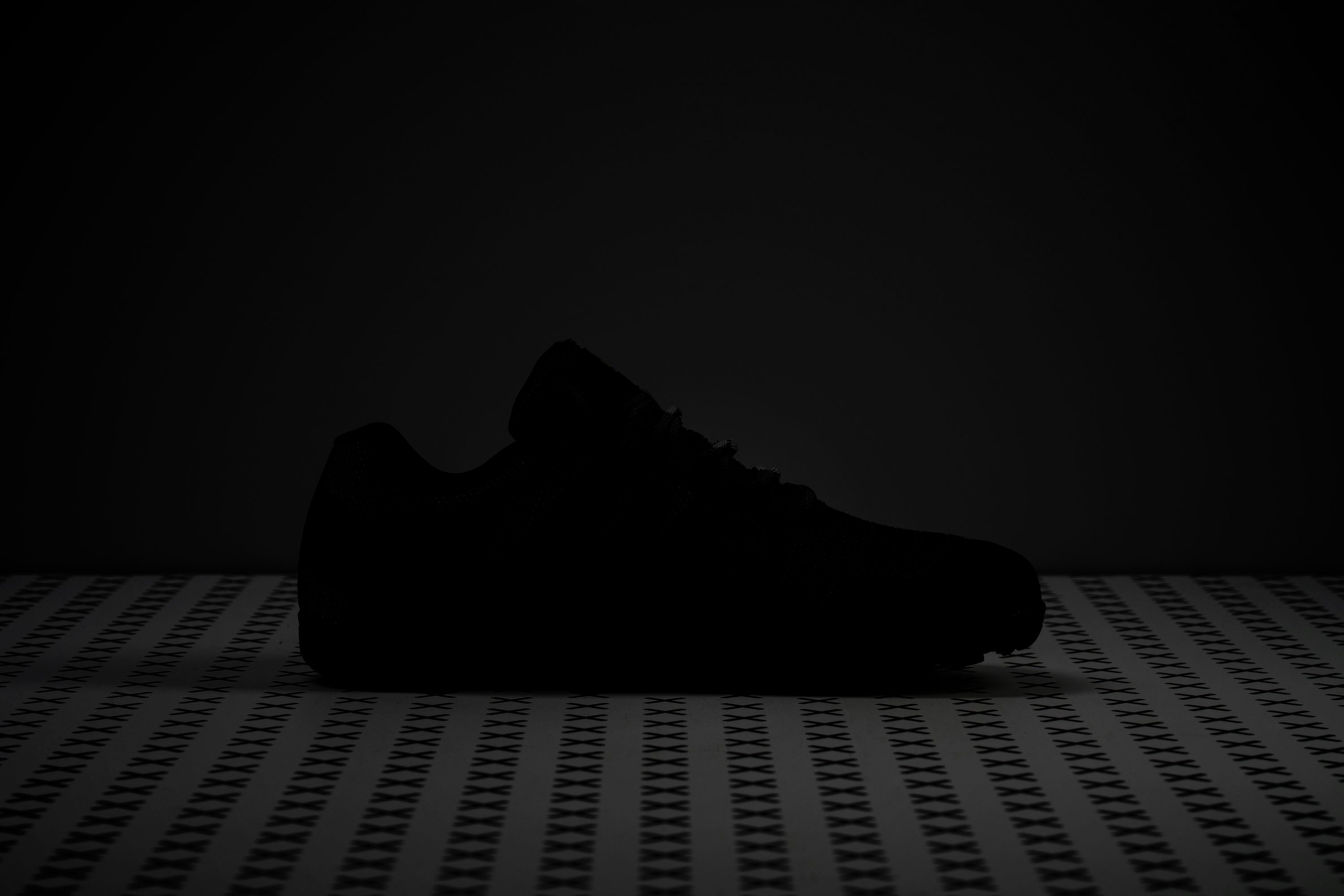
| Mesa Trail WP | No |
Tongue padding
We found a surprisingly thick slab of foam in the tongue, which measured 7.1 mm of padding according to our callipers. We were also surprised to discover rounded laces, as they tend to come untied more easily than their flat counterparts.
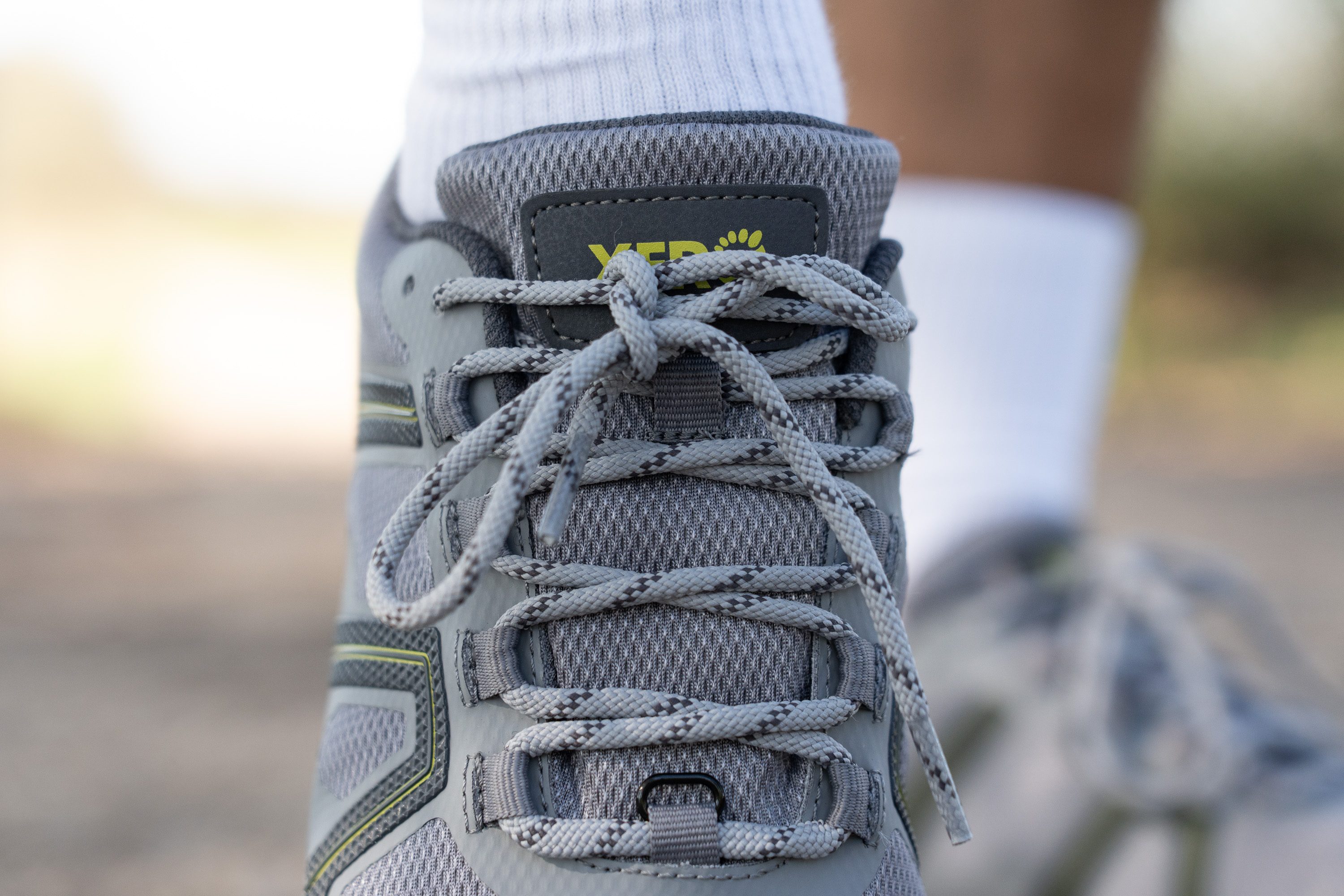
Based on our analysis, the plush yet overly generous padding provides decent comfort but feels excessive for the intended design. We believe that halving the thickness could reduce weight without compromising too much on comfort, making the shoe better aligned with its minimalist purpose.
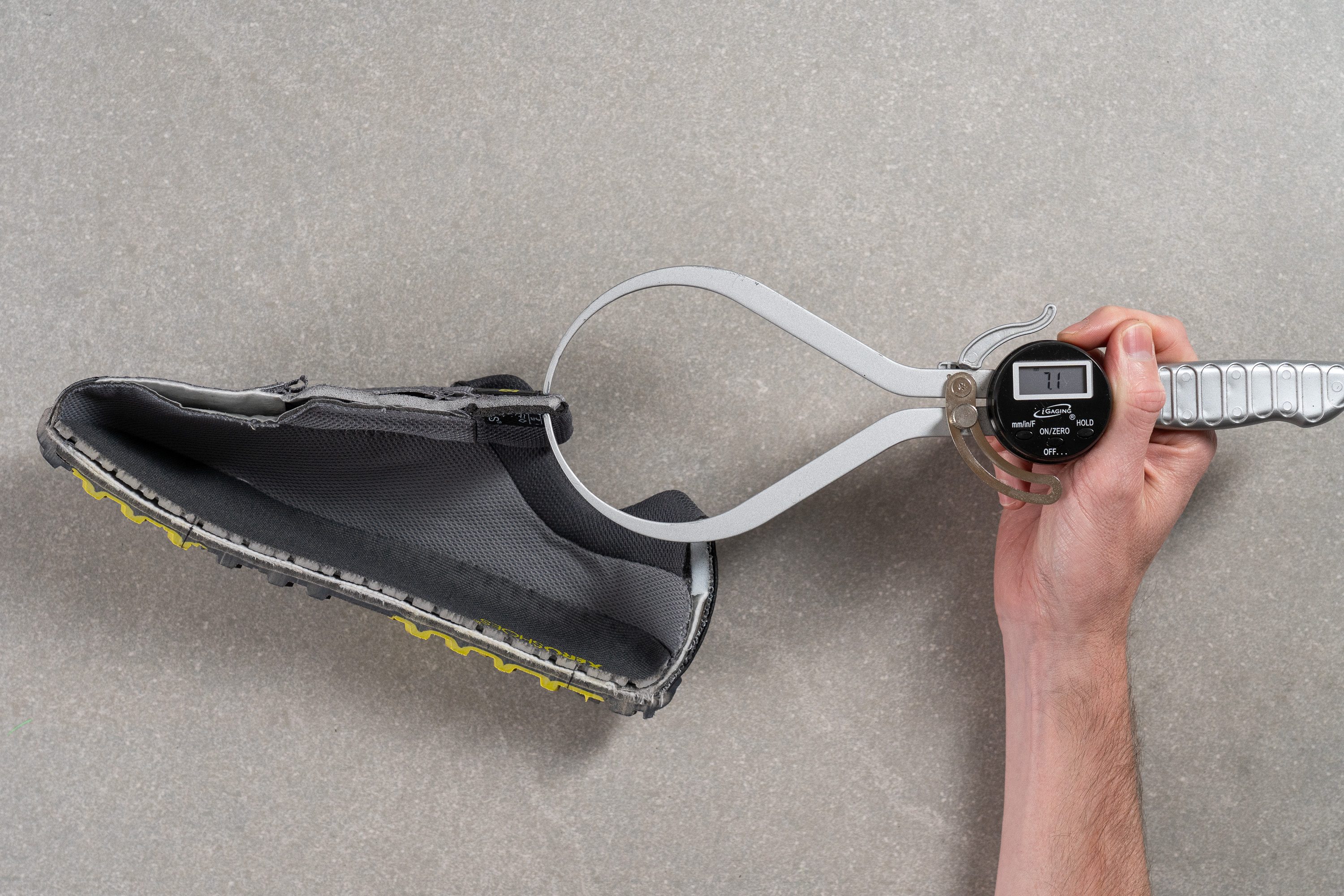
| Mesa Trail WP | 7.1 mm |
| Average | 6.4 mm |
Tongue: gusset type
In our experience, barefoot-like running shoes often lack a gusseted tongue. However, for a waterproof model, that's nuts. That’s why we were relieved to find a fully-gusseted design in the Mesa Trail WP.

| Mesa Trail WP | Both sides (full) |
Heel tab
The Mesa Trail WP, staying true to its minimalist design, lacks a heel tab but includes a vertically-placed strip that runs from top to bottom.

| Mesa Trail WP | None |
Price
The Xero Shoes Mesa Trail WP offers a fair price for a waterproof shoe—even when compared to other models from the brand—but we found that it’s still a significant investment. In our experience, it also comes with a few drawbacks, so it’s worth giving it a second thought before making a purchase.
| Mesa Trail WP | $140 |

